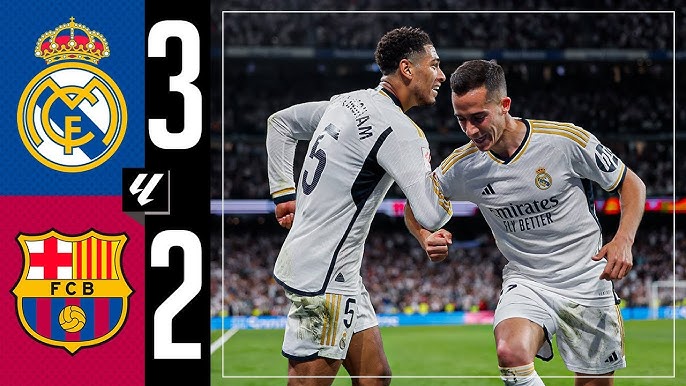FC Barcelona vs Real Madrid: The Ultimate Rivalry Explained
In the world of football, few matchups generate as much excitement and passion as FC Barcelona vs Real Madrid. Known as “El Clásico”, this clash is not merely a game; it represents a deep-rooted rivalry that stretches far beyond the pitch. This blog post will explore the history, significance, and implications of this iconic matchup, providing insights that engage both ardent fans and casual viewers alike.
Historical Context of El Clásico
The rivalry between FC Barcelona and Real Madrid dates back over a century, beginning in 1902. The match outcomes have often mirrored the socio-political climate in Spain, establishing the contest as a symbol of regional identity. Barcelona represents Catalan pride and a desire for autonomy, while Madrid often signifies Spanish nationalism.
Key Matches That Defined the Rivalry
Some notable matches have elevated the historical significance of El Clásico, such as:
- March 1960: Real Madrid’s 3-1 victory in the European Cup, Ah the legendary clash that kicked off a longstanding dominance in European competitions.
- April 2017: A thrilling 3-2 victory for Barcelona, which featured Lionel Messi’s last-minute winning goal – an unforgettable image in football history.
- October 2020: This was an intense reign of youth in the rivalry, showcasing new talents like Ansu Fati. The match ended in a 3-1 victory for Real Madrid.
Why El Clásico Matters
El Clásico transcends sports; it captures the attention of millions worldwide, influencing everything from brand engagements to media coverage. The impact of this rivalry can be felt economically, socially, and culturally. Major companies leverage the hype for advertising, and tourists flock to Spain to catch a glimpse of the live action.
The match not only brings in revenue but also unites communities and diversifies conversations around sports in Spain and beyond. It is a catalyst for champions, heroes, and memorable stories.
Current Trends: The State of FC Barcelona and Real Madrid
As we look forward to the upcoming matches, both clubs are undergoing significant changes. FC Barcelona has been focusing on its youth academy, La Masia, to develop future stars while stabilizing its finances after some turbulent years. Conversely, Real Madrid is investing heavily in experienced talent, hoping to maintain its position at the pinnacle of European football.
Fans eagerly await how these two clubs will perform each season. Will Barcelona’s emerging talents be capable of overcoming the seasoned skill of Real Madrid’s squad? The rivalry promises not only thrilling matches but also stories of perseverance and evolution.
The Cultural Impact of El Clásico
El Clásico symbolizes the ideological divisions within Spain, and its implications stretch beyond sport. It covers themes of nationalism, cultural identity, and economic disparity. These matches serve as a platform to discuss broader societal issues, much appreciated by historians and sociologists alike. Educational programs and exhibitions often center around the cultural phenomenology of this match, using it to explore various facets of both Spanish and global culture.
Conclusion
El Clásico between FC Barcelona and Real Madrid isn’t just about football; it’s an intricate tapestry woven with threads of history, culture, and identity. As fans, we are part of a larger story that continues to evolve with each passing match. Whether you support one side or hold neutrality, the excitement and drama of this rivalry are undeniable.
For an exclusive look at the upcoming match, check out this preview: Match Preview on YouTube.
Join the conversation, and let us know who you believe will triumph in the next edition of El Clásico!








